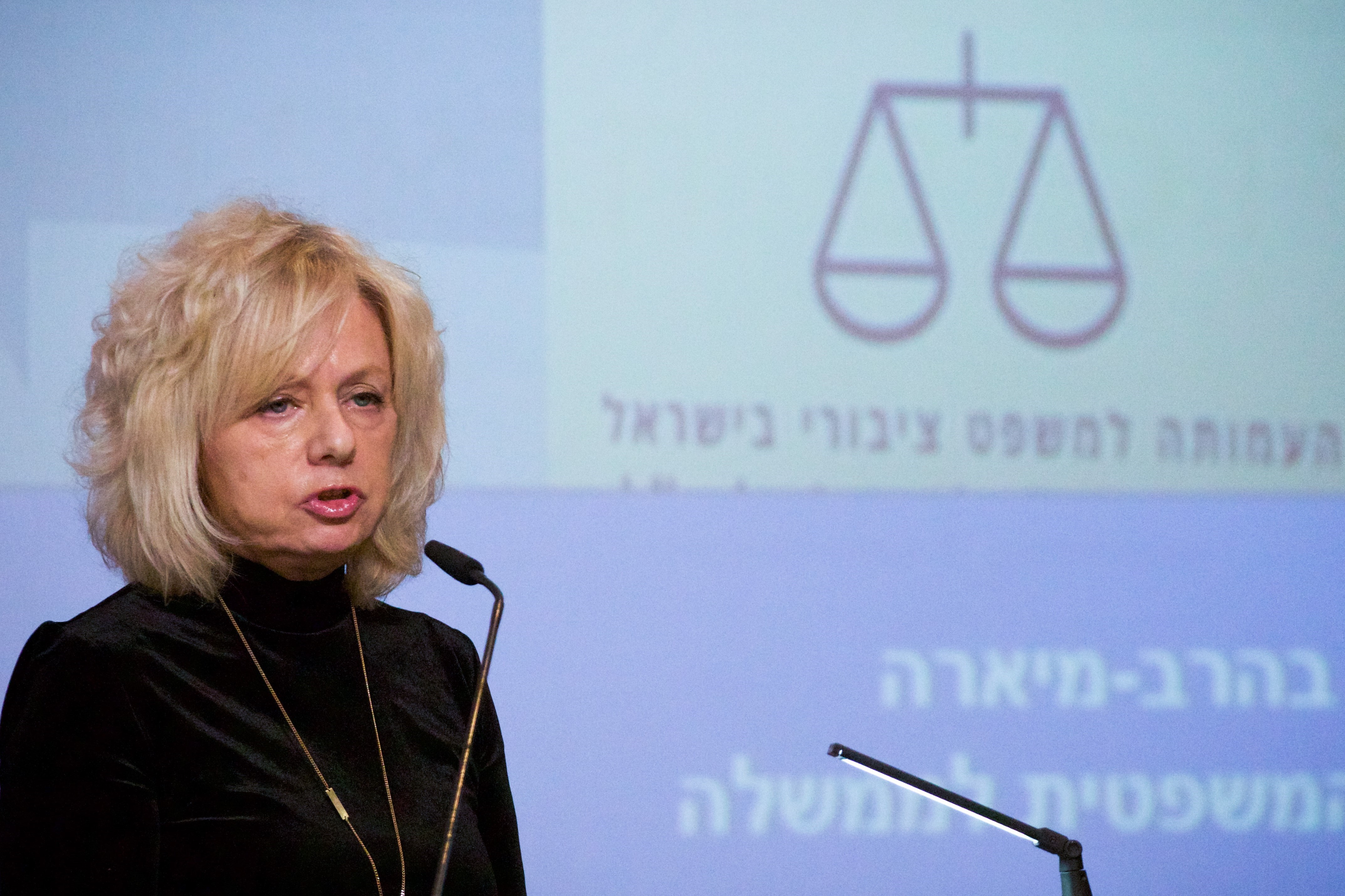It’s Just about Unlimited Power – and Nothing Else
The recently published opinion by the Attorney General, Adv. Gali Baharav-Miara, makes clear that the proposal "reform" makes no attempt to enhance the balance among the branches of government: It is quite simply a demand for unlimited government power.

Attorney General, Adv. Gali Baharav-Miara | Flash 90
The legal opinion published by the Attorney General, Adv. Gali Baharav-Miara, shatters systematically - one by one, all the assertions, justifications, as well as the façade of the comparative basis of the “reform” of the legal system. This proposal makes no attempt to enhance the balance among the branches of government: It is quite simply a demand for unlimited government power.
Israel's Attorney General reminds us of a fundamental principle: Democracy is not only "majority rules". It is also about the protection of human rights, the rule of law, the separation of powers, and an independent judiciary that can serve as an effective check on the other government branches. The so-called reform says nothing about all these principles.
The Attorney General’s opinion, spanning 112 pages, includes a detailed analysis of each component of the “reform”: The change in the composition of the Judicial Appointments Committee, curtailment of the Supreme Court’s ability to strike down laws, revoking its power to nullify Basic Laws, and eliminating the criterion of reasonability. Each of these issues is the subject of a thorough and detailed analysis.
For example, according to the explanation attached to the “reform” bill, “The system for appointing judges in Israel is very much an outlier from the practice in the Western world.” Really? The Attorney General demonstrates, with fact-filled tables, that, “in effect, an extensive examination finds that it is precisely the proposed method that-in a comparative perspective- is an exception.” As for the Court’s power to strike down laws, the Attorney General writes that the “details of the [proposed] arrangement … would dramatically weaken the defense of human rights.”
The claim that the reform proposal is based on comparative law is particularly problematic and misleading. The reform picks and chooses one component from each country ("cherry picking"), and this is apparently enough for its authors to justify importing it to Israel. But, the Attorney General writes, no component stands on its own, and each is actually part of a broader system. “An attempt to adopt an isolated institutional mechanism found in one legal system, while ignoring the context in which it developed … and its unique characteristics—is doomed to failure.” It will not work to import into our law a little bit from here and a little bit from there, a piece from Canada, and a fragment from the United States, and a morsel from England, and so on.
While the reform's proponents have their eyes fixed on unlimited governmental power, what Gali Baharav-Miara sees is the citizen and his or her rights. She explains how some of the proposed changes would be harmful to citizens and jeopardize their rights: eliminating the grounds of reasonability would in effect, eliminate the possibility of compelling the government to behave reasonably. “Citizens would no longer have a remedy to prevent harm to themselves and to their rights as the result of an extremely unreasonable decision—and this, on a daily basis.” Elsewhere, she writes that if the proposal is enacted, we will have an unlimited executive branch, and it will no longer be possible to come to citizens’ rescue in the event of an abuse of governmental power.
As for the Supreme Court, the Attorney General believes that passage of the bill would create a system in which the executive and the legislature have unlimited power, which could end up in “damage to the core principles of the State as a Jewish and democratic state.” This statement has special significance.
According to the Supreme Court ruling on the Nation-State Law, there is only one limit on the Knesset when it enacts or amends a Basic Law: It cannot repeal the fact that Israel is a Jewish and democratic state. If it does so—the Supreme Court has the power to intervene and strike down even a Basic Law.
What are those fundamental principles of democracy that a Basic Law cannot harm or undermine? According to the Court’s ruling, they are, “free and equal elections; recognition of the core of human rights; separation of powers; the rule of law; and an independent judiciary.” The proposed legal “reform” would deal a lethal blow to four of these five principles. Should it pass in its current format, the Supreme Court has strong grounds for declaring it null and void.
In conclusion, the message is clear: Changes are possible, and there are certainly things that can be done. There is a need for a Basic Law on Legislation that defines the relations among the branches of government. But, as the Attorney General writes, changes in the structure of the regime must be introduced in a deliberate and orderly fashion, founded in fact, and based on a broad consensus.
“In order to resolve the relations and balance among the branches of government in a serious way, one cannot focus exclusively on one narrow aspect and relate to the judicial branch only, without at the same time- setting boundaries for the executive and legislative branches.”
Defining the relations among the branches of government: Yes. Unlimited power to the government: No.
The article was published in Times of Israel.
